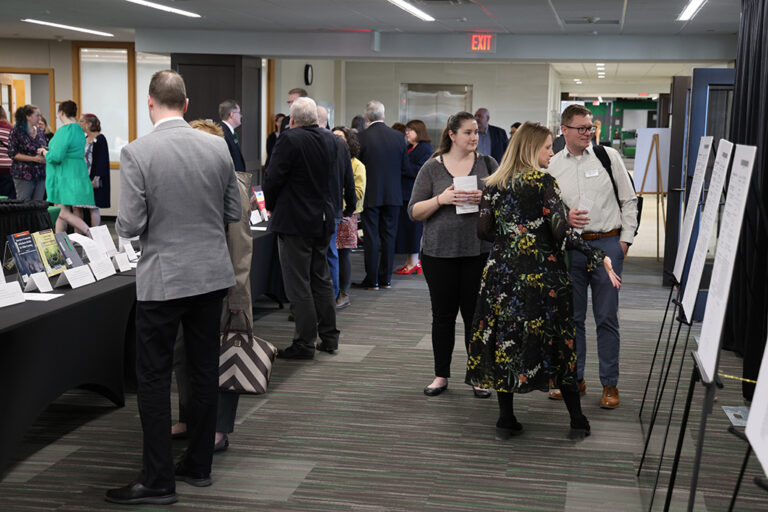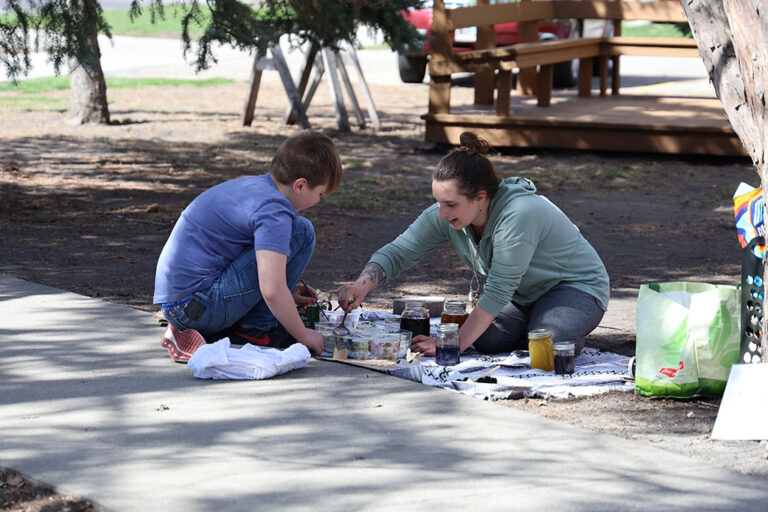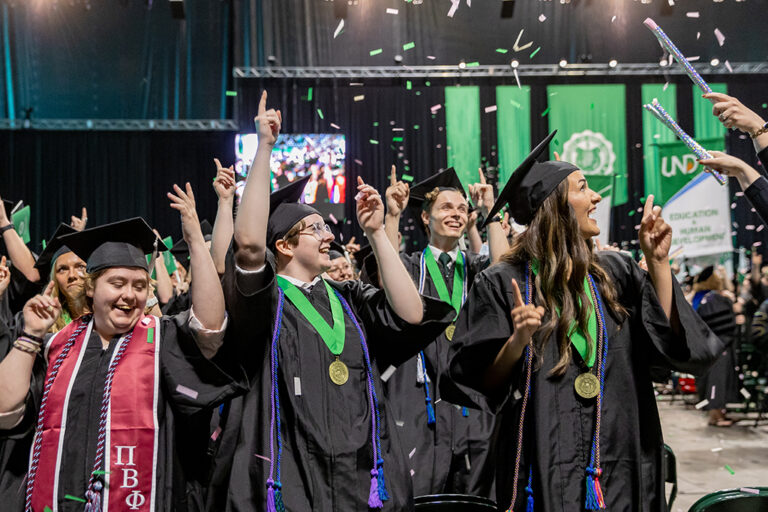UNDergraduate Showcase calls on skills that transcend classroom
Event features research by UND undergraduates on topics from ranging from North Dakota tourism to evolution of stars

Since its launch about five years ago, the Undergraduate Showcase at the University of North Dakota has grown into a marquee academic event that each semester affords undergraduates the chance to share their research with the public.
For a lot of students, the Showcase is the culmination of their first deep dive into a topic. It is also a chance to ignite interests and forge careers, said Ryan Zerr, associate dean of the College of Arts & Sciences, who conceived the event while serving as the director of the UND Essential Studies program.
“The act of taking what you’ve been learning in a variety of courses, synthesizing and integrating those different components of your educational journey up to that point, and using them to help solve a problem that no one has ever solved before, is both educationally valuable and an incredibly exciting experience for a student,” Zerr said.
“I mean, it really can hook them on both the discipline and just the possibilities of what they can realize with their degree.”
The latest iteration of the Showcase took place on Thursday, when roughly 30 undergrads presented their findings over Zoom on themes ranging from the parallels between Germany’s Holocaust and Argentina’s Dirty War, to honey production in North Dakota.
One of the students to log into a Zoom virtual room last week for 75 minutes, a time in which viewers popped in and out to hear him talk about the determinants of rent prices in the U.S., was William Patton.
The airport management major dug into two factors that he found to influence lease prices – median household income and urbanization rates in each state – as part of a Cartography and Visualization course offered by the Department of Geography & Geographic Information Sciences. His interest in the topic, though, goes deeper.
“For some reason, I have a fascination with rent prices, like trying to find the cheapest rent price,” he said.
And, the states with the cheapest rent – Mississippi and West Virginia, which also rank among the poorest and most rural states in the Union.

Like Patton, UND senior Conrad Pederson based his research on a personal interest, namely tourism. Pederson spent a summer working in Utah, where he also hiked, biked and camped in the wilderness of the Beehive State. Thus, Pederson looked into the connection, by county, between North Dakota’s public land available for recreational activities, and tourism spending. But as often happens with scientific hypotheses, no such connection could be found.
Urban counties such as Cass, which encompasses Fargo, and Grand Forks capture most tourism dollars thanks to Canadian shoppers (among other factors), while Billings and McKenzie counties, home to Theodore Roosevelt National Park and the town of Medora, lag very far behind, Pederson learned.
“That really surprised me, because when I think of North Dakota tourism, I think right away about places like Medora or the Badlands,” Pederson said. “So, my findings didn’t match my initial assumptions.”
But this is what science is all about, he added. Posing a question, digging out data, proving or disproving the initial hypothesis, formulating a new inquiry and repeating the process: This is the formula that promotes problem-solving and learning, and it invigorates Cameron Bush, a UND senior majoring in Physics.
For his research, Bush used MESA code, an open-source code for creating scenarios of stellar evolution, to study the effect of metallicity. Metallicity measures how much of a star is made up of elements other than Hydrogen and Helium.
“In my case, one of my favorite things actually is when my simulations don’t work, and they spit out something that’s kind of strange,” Bush said. “That’s because then I get to go in and find out, why is this happening? Just what is the problem here?”
Aside from teaching students critical analytical and perceptive skills, research can also prepare them for a variety of professional pursuits outside of the academy. For instance, Peterson said that his tourism project has equipped him with new skills he can apply as a teacher one day.
“I think just knowing how to be resourceful and where to look for specific data is a very valuable skill,” he said. “So, I’ll now be better able to find the data that can back up the points I’ll be trying to make to my students.”
Zerr concurred, saying, “At a minimum, undergraduate research is a good opportunity for a student to gain a sense of what it means to be involved in a career. So, there’s a career exploration element to it, but there’s also an inherent educational benefit, as well.”


